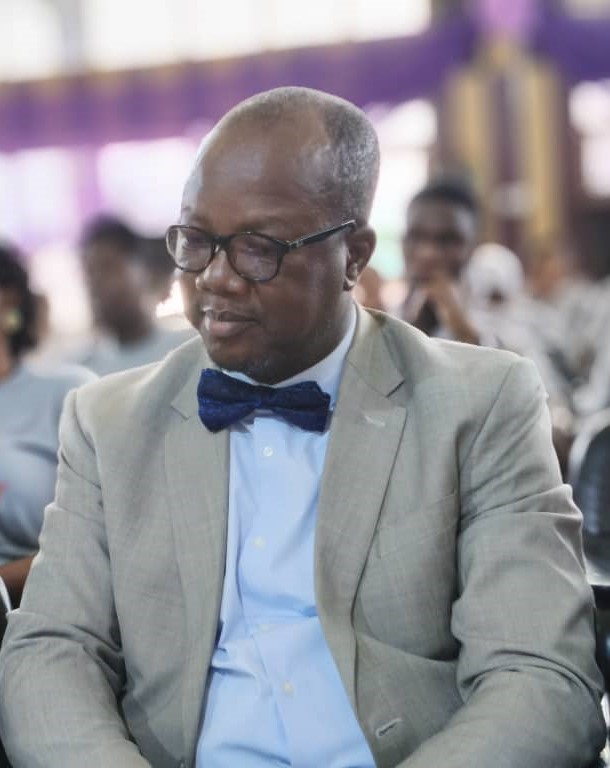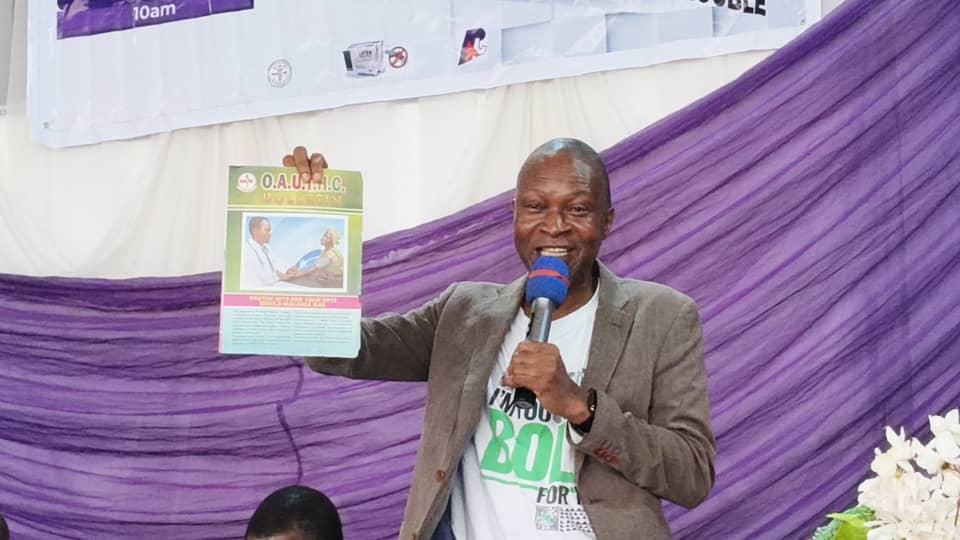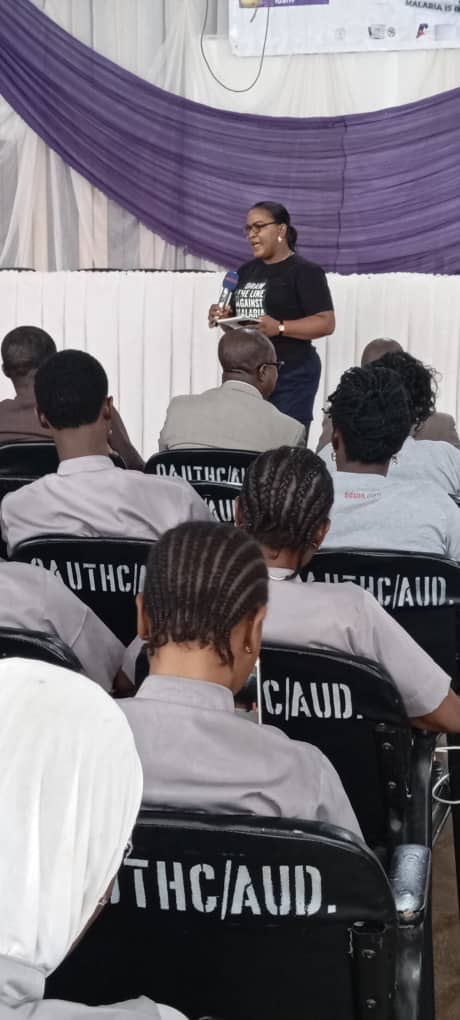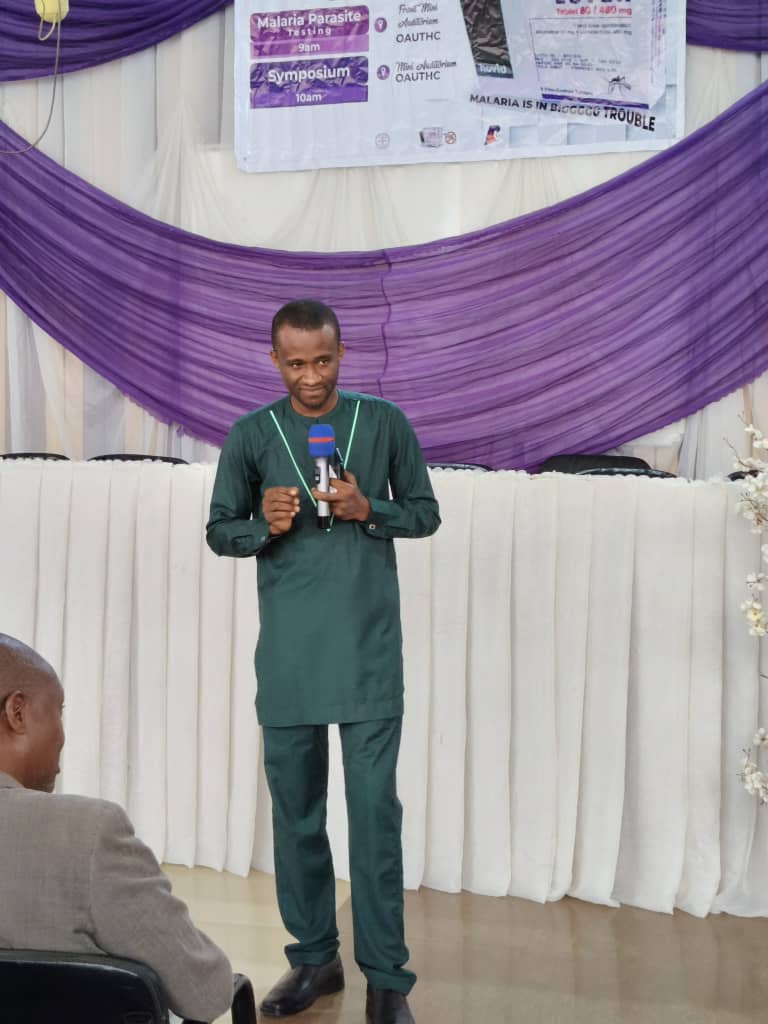The Department of Family Medicine, Obafemi Awolowo University Teaching Hospitals Complex, Ile-Ife, joined the world in celebrating this year’s World Malaria Day on 25th April, 2025, with the theme “Malaria Ends with Us: Reinvest, Reimagine, Reignite.”
The Chief Medical Director, represented by the Phase 1 Physician-in-Charge, Dr. Akinjide Ogundokun, in his welcome address, noted that World Malaria Day was first celebrated 17 years ago and has been marked annually by the Family Medicine Department at OAUTHC for the past 13 years. Over the years, the vision has evolved in various dimensions, positively impacting lives worldwide.

The former Head of the Family Medicine Department, Dr. Ibrahim Bello, appreciated the department’s efforts toward eradicating malaria through numerous initiatives, including the World Malaria Day events. He commended the hospital’s Corporate Services Department for publishing a special report on innovative malaria prevention, treatment, and eradication in its recent Newsletter. In addition, he acknowledged the efforts of the Environmental Health Department and Nursing Services in curbing the spread of malaria. He concluded by expressing hope that malaria elimination in Nigeria is achievable and must begin with individual commitment.

An Assistant Director of Nursing Services, Mrs. Olubunmi Akinola, delivered the first lecture, focusing on the role of nurses in enhancing patient education regarding treatment-seeking behaviour, treatment adherence, and preventive methods. She emphasized that nurses are central to reimagining malaria care, acting as educators, caregivers, advocates, and leaders in both clinical and community settings. Nurses are responsible for educating patients and caregivers on recognizing early symptoms, dispelling myths and misconceptions about malaria, promoting the use of long-lasting insecticidal nets and other treatments, and counselling patients on medication adherence through community outreach. According to her, targeted health education that promotes early treatment-seeking behavior, adherence, and prevention awareness can significantly transform health outcomes.

Mr. Adesuji Adejuwon, Head of the Environmental Health Department, spoke on health solutions for malaria prevention. He described malaria as a communicable disease that anyone can contract via mosquitoes. He outlined environmental health solutions, including environmental management, modification, sanitation, drainage improvement, improved agricultural practices, personal protection, health education, the use of mosquito repellents, and chemically treated nets. He also suggested the planting of mosquito-repelling plants. He encouraged individuals to adopt sustainable methods of preventing malaria.
Dr. Sylvester Edwards, Consultant Paediatrics Physician, discussed reimagining malaria treatment for children. He addressed the challenges of delayed presentation and severe malaria cases in children, stressing that malaria should be treated promptly to avoid severe outcomes, as children die every minute due to malaria. He emphasised the importance of health-seeking behavior, which includes prompt diagnosis, early and effective treatment, limiting disabilities, and access to rehabilitation at referral centers. He concluded that zero malaria is achievable and starts with individual action. Time is of the essence when detecting and treating malaria.

Mrs. Bukunmi Adeniran, of the School of Community Health Officers (CHO), discussed the role of community health officers in malaria prevention. She highlighted their involvement in bed net distribution and indoor residual spraying campaigns. According to her, community health officers are invaluable in malaria prevention and control, especially in implementing and optimizing interventions. Their deep community connections, local knowledge, and ability to operate in challenging contexts make them essential in achieving the goals of World Malaria Day.
Mr. Kehinde Adeniregun, of the School of Health Information Management discussed the role of Health Information Management in tracking and transforming malaria data into actionable insights. He described data as limited but impactful. He emphasized that efforts to eliminate malaria must extend beyond drug provision and vector control to include data governance, system strengthening, data auditing, and the strategic deployment of Health Information Management professionals. Only by transforming data into action can we achieve the global vision of a malaria-free world, reduce disease burden, and promote sustainable health for all.
Dr. Olanrewaju Oyegbade, Head of the Department of Family Medicine, on behalf of the department and hospital management, thanked all attendees and challenged everyone to work together in combating the spread of malaria and reducing malaria-related mortality.




